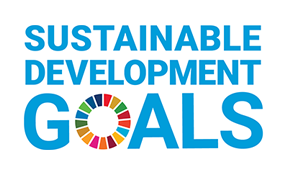At a GlanceReport 3—Access to Safe Drinking Water in First Nations Communities—Indigenous Services Canada
Why we did this audit
- Access to safe drinking water is vital to the health and well-being of First Nations communities. Until deficiencies with water systems are addressed and long-term solutions are fully implemented, communities may continue to have challenges accessing safe drinking water.
- If funding to operate and maintain water systems is insufficient, water systems may continue to deteriorate at a faster‑than‑expected rate. A regulatory regime for safe drinking water in First Nations communities is important to ensure that First Nations people receive protections comparable with other Canadians.
Our findings
- Indigenous Services Canada did not meet its commitment to eliminate long-term drinking water advisories in First Nations communities and deficiencies for some water systems had not been addressed.
- Indigenous Services Canada had not amended the operations and maintenance funding formula for First Nations water systems since it was first developed 30 years ago and a salary gap contributed to problems in retaining qualified water system operators.
- No regulatory regime was in place to help ensure access to safe drinking water in First Nations communities.
Key facts and figures
- On 1 November 2020, 60 long-term drinking water advisories were still in effect. Of the 60, almost half (28, or 47%) had been in place for more than a decade.
- Indigenous Services Canada estimated that 32 (53%) of the remaining 60 long-term drinking water advisories would be eliminated by 31 March 2021. The department expected that the other 28 (47%) advisories could be resolved by September 2021.
Our recommendations
- Indigenous Services Canada should work with First Nations communities to
- strengthen efforts to eliminate all long-term drinking water advisories and prevent new ones from occurring
- implement long-term solutions to ensure that water systems in First Nations communities provide ongoing access to safe drinking water
- proactively identify and address underlying deficiencies in water systems to prevent recurring advisories
- Indigenous Services Canada, in consultation with First Nations, should
- make it a priority to identify the amount of funding needed by First Nations to operate and maintain drinking water infrastructure and amend the existing policy and funding formula to provide First Nations with sufficient funding to operate and maintain drinking water infrastructure
- develop and implement a regulatory regime for safe drinking water in First Nations communities


This audit supports the goal of clean water and sanitation (Goal 6), specifically to “ensure availability and sustainable management of water and sanitation for all” by 2030.
Visit our Sustainable Development page to learn more about sustainable development and the Office of the Auditor General of CanadaOAG.
Related information
| Entities | |
|---|---|
| Completion date | 18 December 2020 |
| Tabling date | 25 February 2021 |
| Related audits |
|